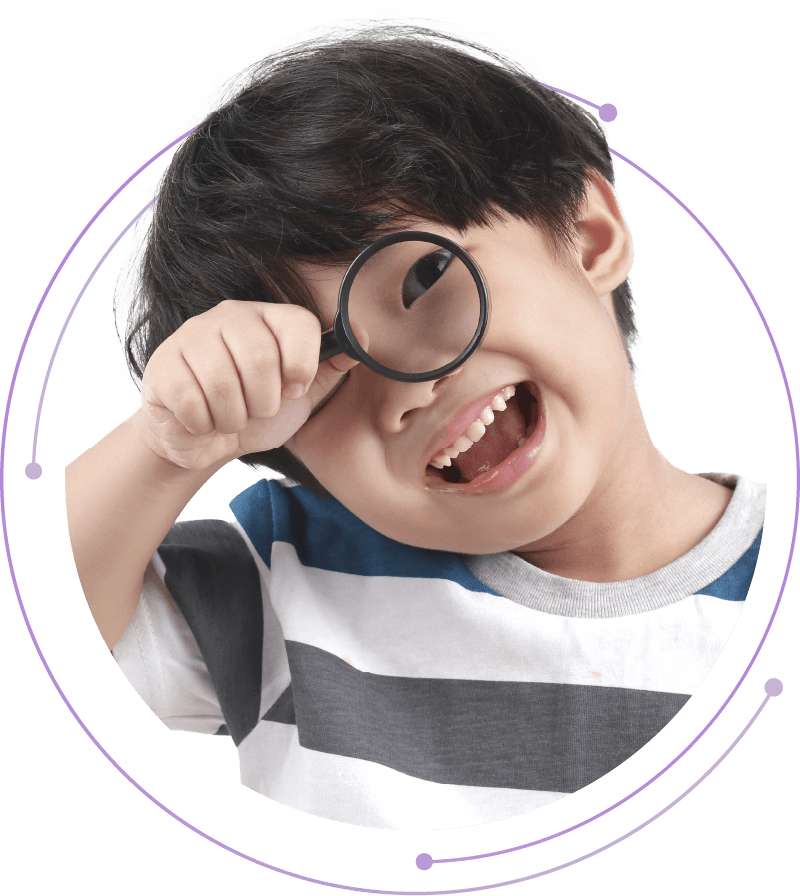
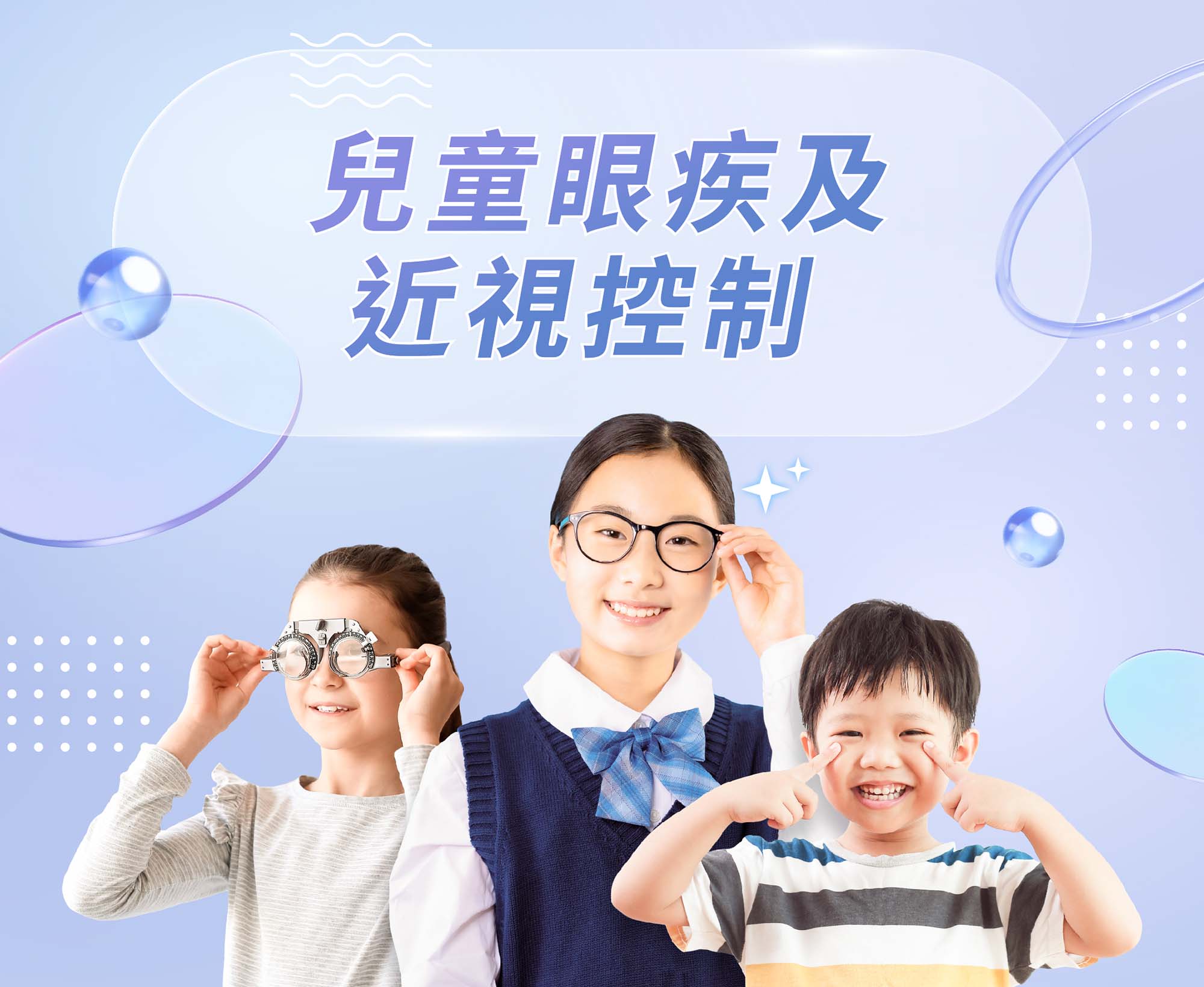

Myopia cannot be reversed, but it can be managed to improve children’s vision and prevent further deterioration, which is crucial for protecting eye health in the future. CUHK Medical Ophthalmology offers a comprehensive and professional myopia control programme for children, with a wide range of options. Based on the individual needs of each child, our ophthalmologists and optometrists provide tailored solutions such as myopia‑control spectacle lenses, daily contact lenses, orthokeratology (OK lenses), atropine eye drops, as well as ongoing monitoring of myopia progression to safeguard children’s eye health.
Myopia refers to when the eyeball is too long or the lens becomes thick, affecting the focusing ability, allowing light to fall in front of the retina, causing the eyes to see distant images blurred, while near objects are clearly visible.
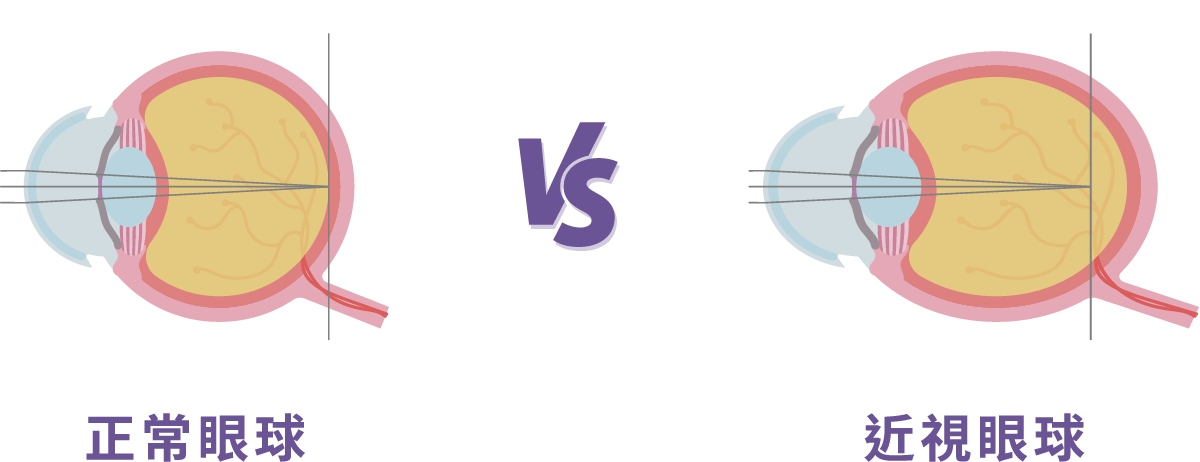
Myopia could be resulted from congenital or acquired environmental, lifestyle and habits. As your eyes become more short-sighted, they grow longer.

As the eyeball grows longer, the retina will also be stretched and thinned, leading to eye degeneration and complications, such as vitreous and retinal degeneration, and increasing the risk of retinal rupture and detachment.Macular Degeneration cause visual impairment and image distortion, and severe cases may even lead to blindnesslead to blindness.

Myopia Control Solutions

Optical Myopia Control Lenses
The optical lens applies scientific principles and the design of a special myopia control lens to help wearer slow down the progression of myopia.
MiyoSmart | DIMS Spectacle Lens
are jointly developed by the Hong Kong Polytechnic University and lens manufacturer Hoya. The lens adopts non-invasive patented D.I.M.S. technology and is equipped with "multi-zone forward optical defocus" in the center of the lens to correct vision; the periphery of the lens is composed of approximately 400 1mm "multi-zone forward optical defocus" elements arranged , no matter what angle you look at, it can achieve the effect of "myopia defocus", which helps to control myopia and provide clear and stable vision.
The wearer needs to be reviewed regularly by registered optometrist who will use an eye-axis measurement device to closely observe the rate of myopia progression. If control is not as expected, an immediate referral will be made to an in-house ophthalmologist for follow-up and assessment. Additional control options, such as Atropine, may be recommended as appropriate.
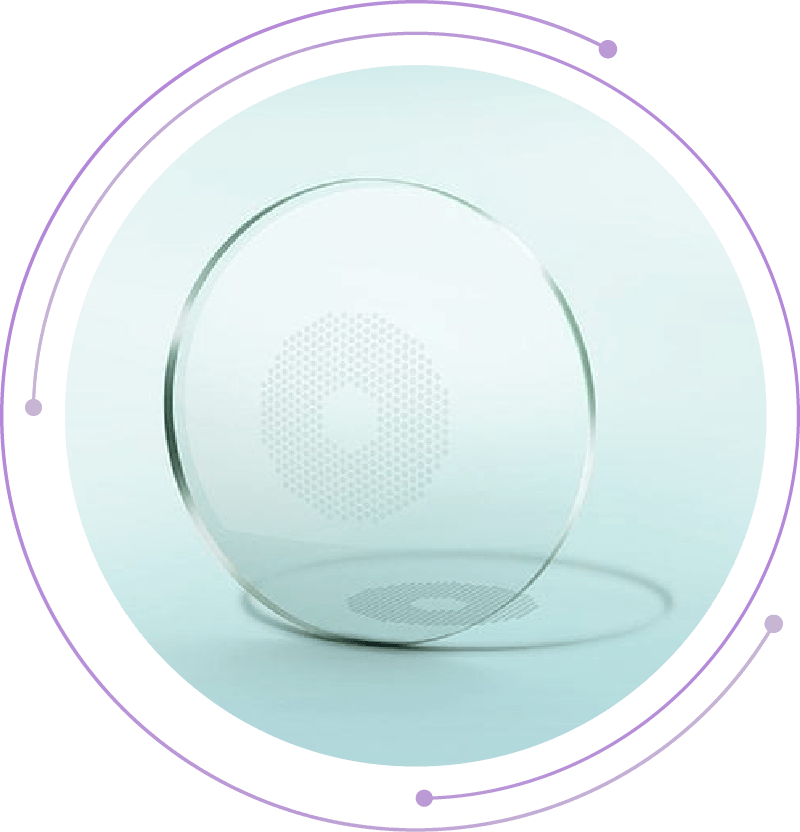
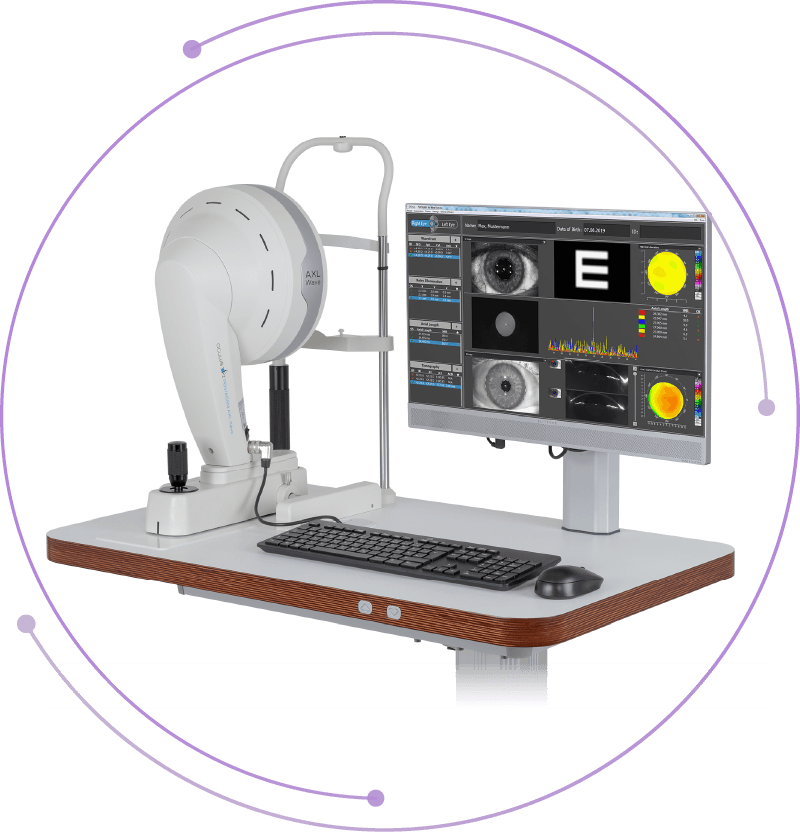
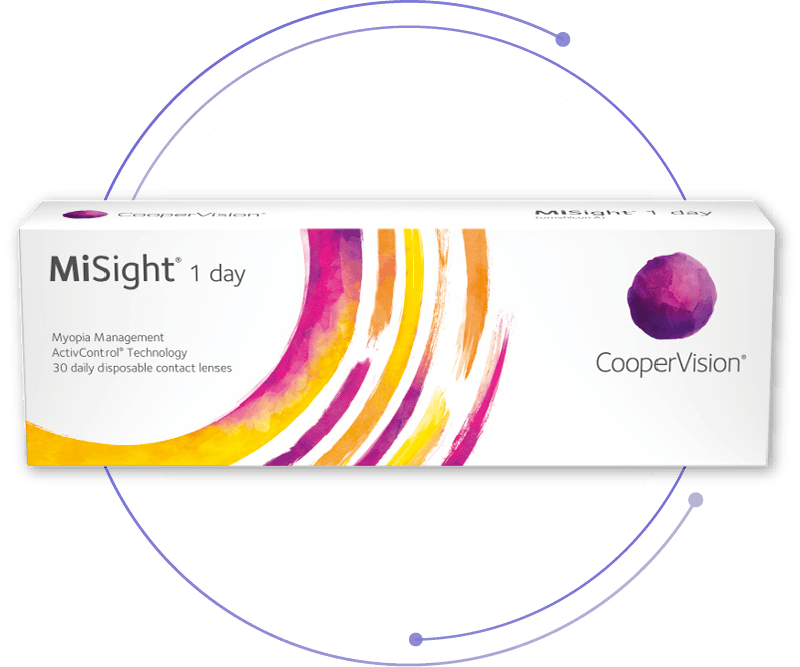
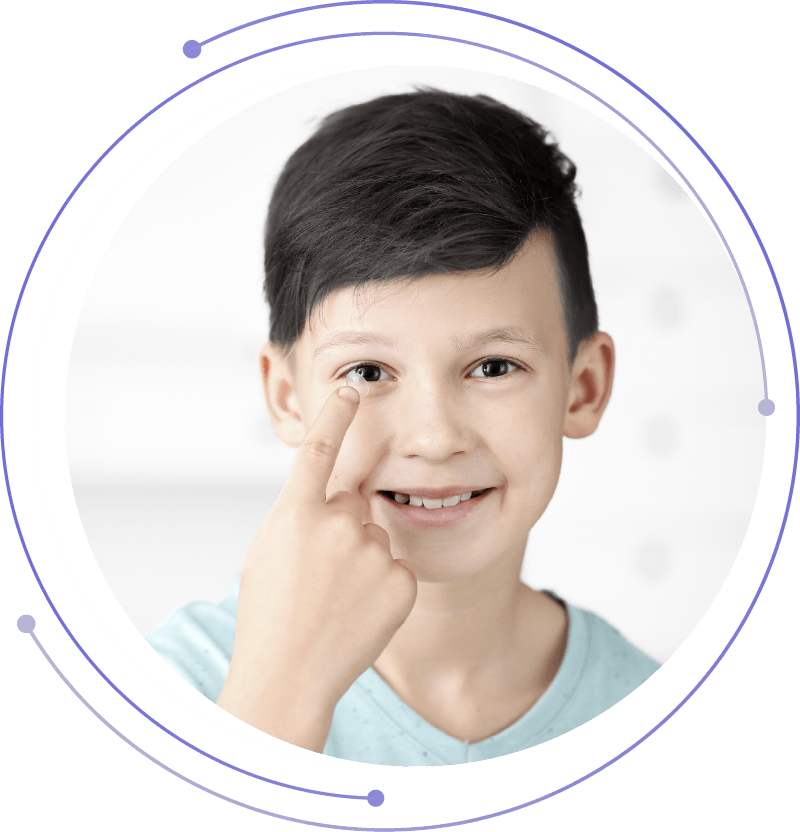

Daytime Contact Lenses
MiSight® disposable contact lenses take advantage of the ground-breaking ActivControl® Technology to help reduce the likelihood of children suffering from severe myopia (more than 6D). Lenses are made of Proclear® material to lock in lens moisture and provide high oxygen permeability, ensuring the wearer comfort and eye health.
Disposable contact lenses correct myopia and allow children to enjoy clear vision without the constraints of rimmed glasses. Moreover, the practice is safe and hygienic as it eliminates the need for daily cleaning and sterilising.
The whole process will be followed by a registered optometrist who will explain contact lens wearing tips and the relevant care. 4 reviews for contact lens will be carried out across the programme (7 months) to track effectiveness and monitor eye conditions. If you experience any discomfort, you will be referred to our in-house ophthalmologist for immediate follow-up.

Atropine Eye Drops
Medication is another option to help slow down the progression of myopia. Atropine eye drops, when used consistently, can help reduce the rate of myopia progression. A small number of children may initially experience side effects such as light sensitivity, but these usually improve within a few weeks.

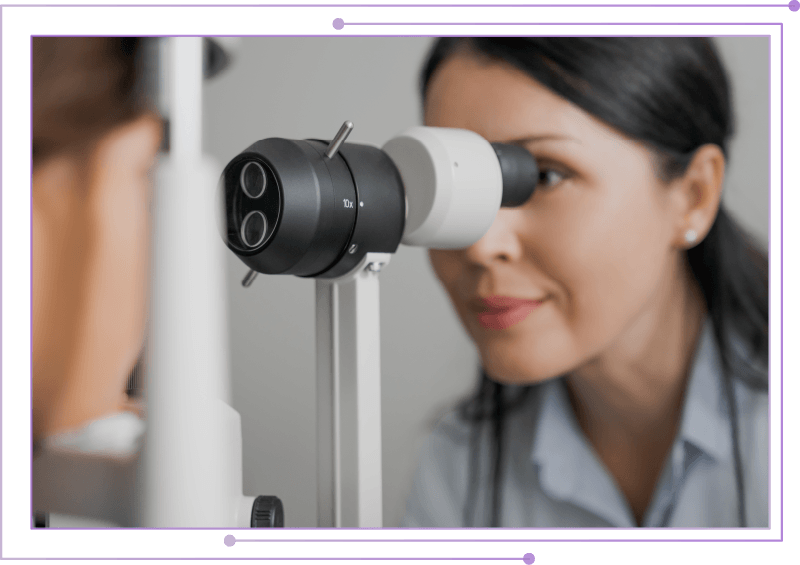
The whole process will be followed regularly by an ophthalmologist who will measure eye axis length and refractive error, observe the control effectiveness and eye conditions, and, if necessary, increase the atropine concentration or add on other control options. Individually served Atropine eye drops are more hygienic and safer than bottled drops.
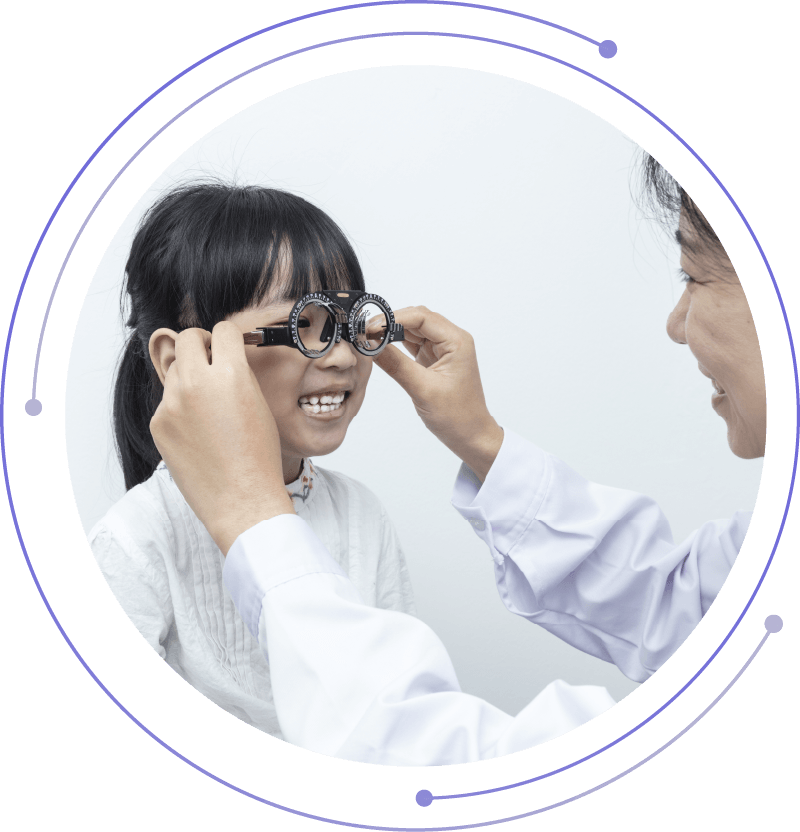

Orthokeratology (Ortho-K, commonly known as OK lens)
Orthokeratology, or Ortho-K, is the use of rigid, gas-permeable contact lenses to temporarily reshape the cornea by pressure to improve vision. You need to put on the lenses before going to bed and take them off when you wake up. You can obtain a clear view during the day without wearing glasses.
This method does not cure myopia. Once the lenses are no longer worn, the myopia‑control effect will gradually diminish over time, and the degree of myopia will return.

The whole process will be followed by a registered optometrist who will explain contact lens wearing tips and the relevant care. 6 reviews for contact lens will be carried out across the programme (1 year) to track effectiveness and monitor eye conditions. If you experience any discomfort, you will be referred immediately to our in-house ophthalmologist for follow-up.
| Optical Lenses | Daytime Contact Lenses | Atropine (Atropine) Myopia control |
Orthokeratology (Ortho-K) |
|
| Followed by | Registered Optometrist | Registered Optometrist | Ophthalmologist | Registered Optometrist |
| Principle | Use of DIMS lens to inhibit myopia progression | Use of DIMS lens to inhibit myopia progression | Slow eye growth and reduce eye muscle pressure | Temporarily alter the curvature of the cornea to reduce myopia condition |
| Stability of myopia control | ||||
| Degree of convenience | ||||
| Advantages | Easy to put on and take off | Can be fitted for myopia without the need for glasses | Individually served, easy to use, safe and hygienic | No glasses required for daytime activities |
| Points to note | / | Children need to wear and remove contact lenses themselves every day | Must be prescribed by an ophthalmologist; Eyeglasses are required | Children who rub their eyes unintentionally may suffer from corneal damage or infection |
| Age* | >3 years old | >6 years old | >4 years old | >8 years old |
| Refraction | Myopia ≤600 degrees; Astigmatism ≤400 degrees | Myopia ≤600 degrees; Astigmatism ≤400 degrees | Any refraction | Myopia ≤600 degrees; Astigmatism ≤200 degrees |
| Non-invasive | 〇 | ╳ | ╳ | ╳ |
| Effect | Slowed myopia progression by 59% in average in 2 years2 |
Slowed myopia progression by 59% in average in 3 years4 | Slowed myopia progression by 67% in average in 1 years1 | Slowed eye elongation by 43%3 |
*Depending on individual actual situation
^Users need to instill atropine eye drops every night before going to bed
#Users are required to wear the lenses to sleep for 6-8 hours each night
1. Yam JC, et al. Ophthalmology 2019; 126: 113–24.
2. Lam CSY, Tang WC, Tse DY, Lee RPK, Chun RKM, Hasegawa K, Qi H, Hatanaka T, To CH. Defocus Incorporated Multiple Segments (DIMS) spectacle lenses slow myopia progression: a 2-year randomised clinical trial. British Journal of Ophthalmology. Published Online First: 29 May 2019. Doi: 10.1136/bjophthalmol-2018-313739
3. Cho P and Cheung SW. Invest Ophthalmol Vis Sci 2012; 53: 7077–85.
4. CLEERE Study Group Early Childhood Refractive Error and Parental History of Myopia as Predictors of Myopia. Invest Ophthalmol Vis Sci. 2010 Jan; 51(1):
